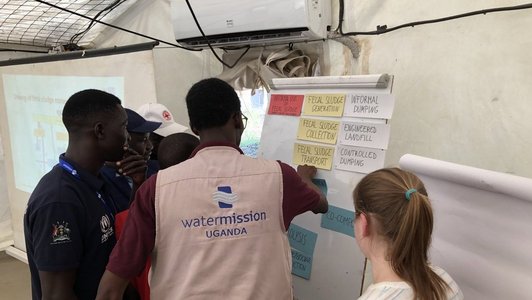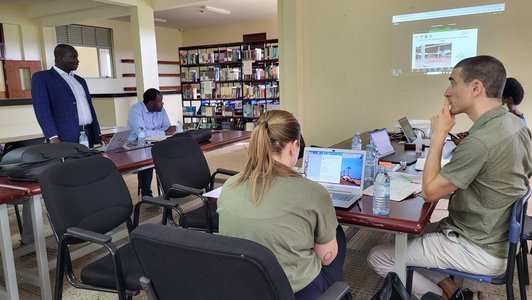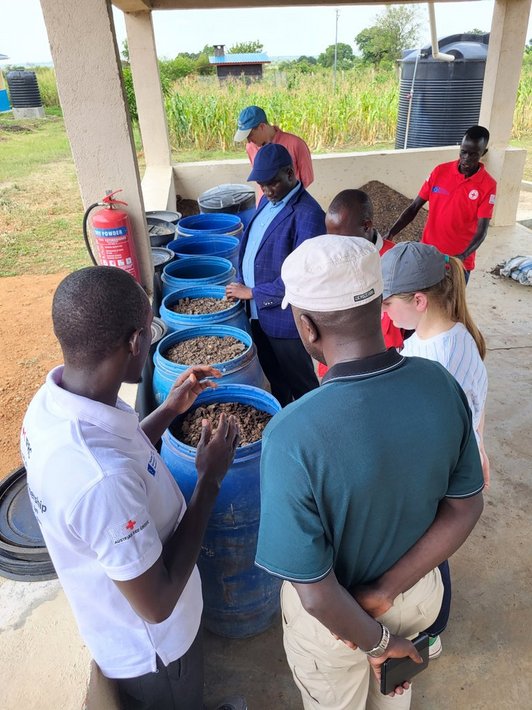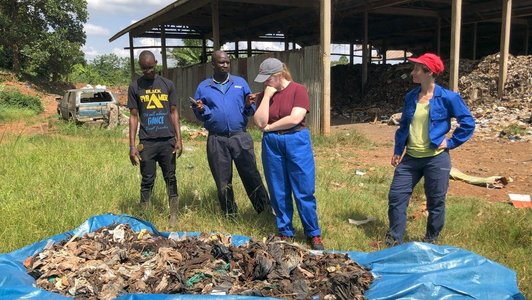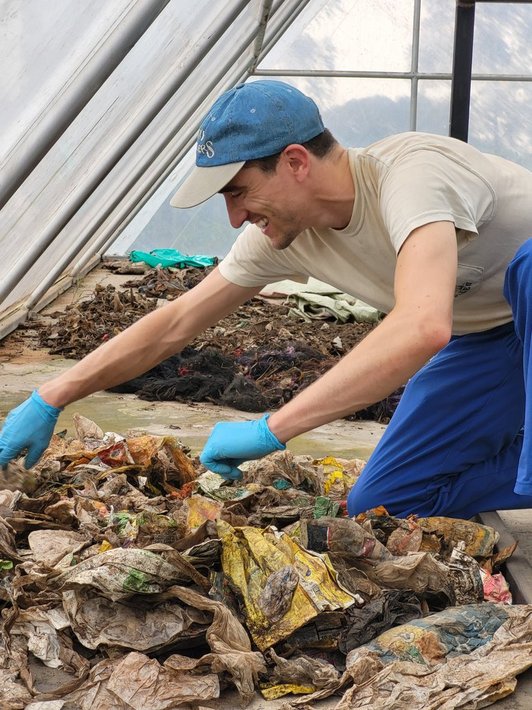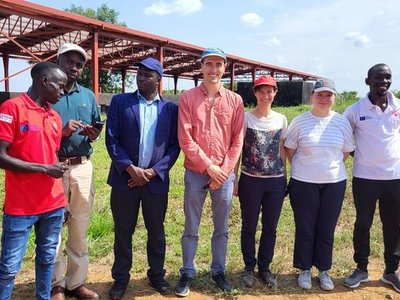

Even with being tight on time, their ambitious agenda was fulfilled successfully, which included a major project partner meeting, consultations with students from Makerere and Mbarara universities, a visit to Imvepi refugee settlement in the West Nile sub-region, a stopover at the Austrian Development Agency in Kampala, and engaging exchanges with relevant industry stakeholders who might be pivotal in the uptake of research results generated by CPUg. In this particular case, a cement company and a plastics recycling company, both major players in their respective sectors.
At the heart of the visit though, were two round table discussions on fecal sludge management (FSM) in two distinctive districts of Uganda (Terego and Wakiso), as well as a second sampling campaign that was conducted at two industrial composting plants in Mukono and Masindi. The round table discussions helped shape and refine the concept for a software tool that is aimed at improving FSM planning within Uganda, by receiving inputs from the practitioners themselves, directly from their respective districts.
The collected waste “sieve” rejects from the composting plants have been sorted, dried, and will now be processed further for analysis with the main part to be done in Vienna. The idea is to show that this waste byproduct, that has little to no value at present other than to be dumped next to the plants or landfilled, can be valorized by converting it into refuse-derived fuel and used as a fossil fuel replacement in domestic cement production—effectively transforming waste into a valuable resource.
All of these efforts are intended to improve circularity within Uganda’s FSM and solid waste management systems, potentially even attempting to integrate the two. TU Wien, with its partners, Makerere University, Uganda Red Cross Society, and Mbarara University of Science and Technology, continue to work tirelessly to #CloseTheLoop.
More information on the CPUg project.
Project Linkedin page.


